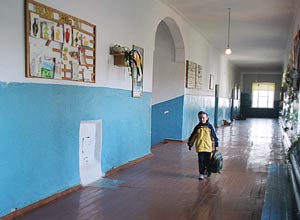INFORMATION
Foundation of EducationFoundations of Education relies heavily on the disciplines and methodologies of the humanities, particularly history and philosophy, and the social sciences, such as sociology and political science. The purpose of foundations study is to bring these disciplinary resources to bear in developing interpretive, normative, and critical perspectives on education, both inside and outside of schools. The general objectives of these foundational studies are to introduce students to interpretive uses of knowledge germane to education and to establish a basis for life-long learning through normative and critical reflection on education within its historical, philosophical, cultural, and social contexts.
The interpretive perspectives use concepts and theories developed within the humanities and the social sciences to assist students in examining, understanding, and explaining education within different contexts. Foundational studies promote analysis of the intent, meaning, and effects of educational institutions, including schools. Such studies attend particularly to the diverse contexts within which educational phenomena occur, and how interpretation can vary with different historical, philosophical, and cultural perspectives.
The normative perspectives assist students in examining and explaining education in light of value orientations. Foundational studies promote understanding of normative and ethical behavior in educational development and recognition of the inevitable presence of normative influences in educational thought and practice. Foundational studies probe the nature of assumptions about education and schooling. They examine the relation of policy analysis to values and the extent to which educational policymaking reflects values. Finally, they encourage students to develop their own value positions regarding education on the basis of critical study and their own reflections.
The critical perspectives employ normative interpretations to assist students to develop inquiry skills, to question educational assumptions and arrangements, and to identify contradictions and inconsistencies among social and educational values, policies, and practices. In particular, the critical perspectives engage students in employing democratic values to assess educational beliefs, policies, and practices in light of their origins, influences, and consequences.
Study in Foundations of Education shall NOT be equated with “Introduction to Education” coursework unless such study clearly addresses the three perspectives indicated in this Standard and is taught by individuals specifically trained in Foundations of Education.
Foundation of Education
Foundation of Education
Foundation of Education
Foundation of Education
Foundation of Education
Foundation of Education
Foundation of Education
Foundation of Education
Foundation of Education
Foundation of Education









No comments:
Post a Comment